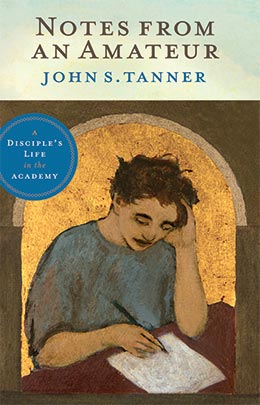Labor and Rest
John S. Tanner, Notes from an Ameteur: A Disciple’s Life in the Academy (Provo, UT: Religious Studies Center; Salt Lake City: Deseret Book, 2011), 117–9.
The odd thing about Labor Day is that, for most people, it is not a day of labor at all. Instead, it is the last play day of summer vacation. After Labor Day, people return to work and school, shouldering again life’s routine cares and responsibilities. Labor Day often involves one last, occasionally desperate attempt to squeeze some final diversion out of a fast-fading summer holiday season.
Labor and rest—these mark two grand alternating rhythms of life that govern everything from the functioning of muscles to the cultivation of the soil. In Latin the inverse symmetry between labor and rest is signaled linguistically: otium (leisure) and negotium (work). Both are necessary for a well-balanced life. “All work and no play make Jack a dull boy” captures a common but crucial bit of timeless wisdom. But the opposite is also true, as Shakespeare shrewdly observes, “If all the year were playing holidays, / To sport would be as tedious as to work.”
The alternating rhythms of labor and rest are essential for human flourishing. The Lord himself inscribes this wisdom in the law of the Sabbath. The prevalent contemporary idea that we should conform our lives to the demands of a 24/
I freely admit that I am not good at resting. Those who know me well might justifiably say, “Physician, heal thyself!” (Luke 4:23). My excuse for writing this essay is that I need its medicinal message as much or more than any of you, for I am admittedly afflicted with the disease of dis-ease, or rather lack of ease.
Like many of you, I am much too tethered to the office. I take my laptop home every night. When I am not online, I am connected to work by my phone. My life is constantly interrupted by the familiar little ding that signals another email. Curious by temperament, I find it hard to resist opening emails and constantly checking in on work at the office. As a result, I am never away from the office, even when I am physically away. Every day is labor day.
This is not healthy. The soil of the soul needs fallow as well as fertile seasons. We all need Sabbaths. Our minds as well as our muscles are toned and strengthened as they are contracted and then relaxed. I know this well, even if I fail to fully apply it. So on this Labor Day, at the end of a summer vacation that scarcely seemed like a vacation, I confess my failure to unstring the bow.
This is no small matter in heaven’s plan for human happiness. From the beginning, the Lord sanctified rest. God himself set the example. Though all powerful, he “rested from all his work” (see Genesis 2:2–3) after Creation. Then he resumed the re-creative work of repairing the ruination that fallen mankind visited upon Creation, which would cause the very earth to cry out, “When shall I rest?” (Moses 7:48). There is a pattern in this too for us. Rest can enable re-creation.
I like the term recreation as opposed to, say, vacation. Vacation implies an empty, vacant time—a period of loafing, of hanging out, of passing the time. Recreation, by contrast, reminds us, etymologically, that periods of time-out can serve the serious purpose of renewal. At its best, recreation allows us to re-create ourselves in order to return to ordinary life renewed, refreshed, and reinvigorated. The highest function of play is re-creation.
So as we once again take up the heavy responsibilities of a busy school year, let us not only remember the Sabbath to keep it holy but also remember the sanctity of rest. Let us make time in a hectic, harried, 24/
